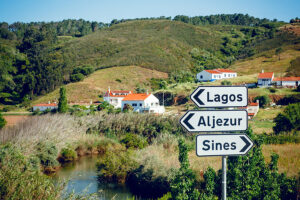Repsol is preparing to begin producing biomethane and hydrogen at its industrial complex in Sines, Portugal, with operations expected to start in 2026.
The initiative is part of the company’s broader strategy to transition its refineries to fully renewable fuel production.
The Sines facility, located on Portugal’s southwest coast, is a central part of Repsol’s renewable energy efforts.
Armando Oliveira, Repsol’s Managing Director in Portugal, told the Portuguese news agency Lusa that preparations for the biomethane facility are complete.
However, progress on the project has been influenced by other parallel investments, including a new polymer reuse facility and the installation of solar power infrastructure, which have shifted the company's internal timelines.
On the hydrogen front, Oliveira confirmed that Repsol is developing a project in Sines and is also evaluating the potential to expand to Torres Novas.
He described hydrogen development as a gradual learning process, comparing it to advanced aerospace work, and indicated that more concrete updates are expected in the coming year.
These projects form part of Repsol’s goal to convert its refineries to produce only renewable fuels, such as hydrotreated vegetable oil (HVO), which is manufactured using organic waste and green hydrogen.
The hydrogen is produced via electrolysis powered by solar energy.
According to Oliveira, the Sines site will undergo a significant transformation.
“What we traditionally recognise as a refinery will change completely,” he said in comments reported by Lusa. Repsol positions itself as the Iberian Peninsula’s largest producer of renewable fuels and advocates for a multi-solution approach to energy, combining electric mobility, renewable diesel, hydrogen and other technologies.
Commenting on the competitive fuel retail market in Portugal, Oliveira acknowledged the role of low-cost service stations but noted that a significant share of Repsol’s customers prefer premium fuels, citing a figure above 35%.
He also reflected on the unpredictable nature of global energy markets, referencing both the pandemic and recent geopolitical instability.
“We’ve learned to operate day by day,” he said, highlighting the sector’s resilience in the face of sales drops of up to 70% during lockdown periods.
Regarding the power outage that affected the Iberian Peninsula on 28 April 2025, Oliveira stressed the need for improved preparedness, pointing to logistics and communication as key focus areas in managing future disruptions.
Despite advances in renewables, Oliveira reiterated the continuing importance of natural gas in the regional energy mix.
Repsol plans biomethane production in Sines by 2026

















